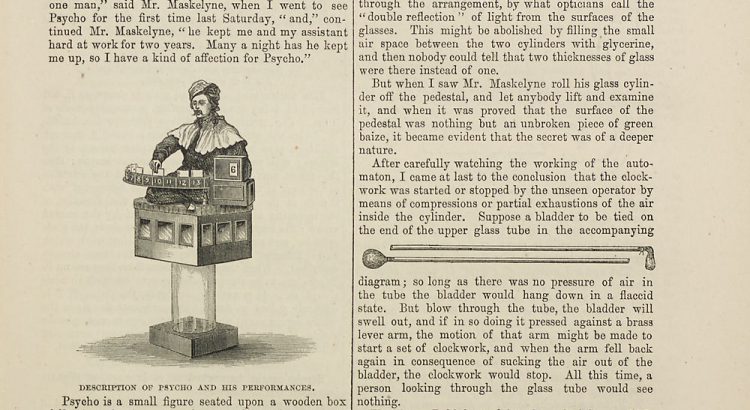According to an article in “The Times” published on 26th January 2021 the Covid-19 pandemic has led to a revival in Spiritualism. This is not surprising as historically when people have had to deal with the untimely death of family and friends Spiritualism has made a comeback.
Spiritualism is a belief that spirits of the dead exist and the living can communicate with them. Central to Spiritualism is the idea of the spirit world. In this place spirits don’t just exist but continue to evolve. The evolved spirits can provide great insights into ethical and moral dilemmas that trouble the living.
The Library decided to digitize and make available to the public a complete run of “The Spiritualist” a 19th century periodical on our website around 2 years ago. You can access it via the following link > http://digital.nls.uk/the-spiritualist/archive/135
Click above and you will be able to read a complete run of “The Spiritualist”, later “The Spiritualist Newspaper” and a partial run of its short lived successor “Psyche”.
Published in London from 1869-1882 “The Spiritualist” is a key title of the Spiritualist movement in the UK. With no central structure or key texts, periodicals played an important role in the movement. Perhaps because of its informal structure women were unusually prominent in Spiritualism. Nearly all other religious movements of the time were male dominated. Spiritualists were associated with progressive political causes of the time such as the abolition of slavery and votes for women.
The image at the top of this post is of Psycho an automaton or early robot and is from the April 30th 1875 issue of the “The Spiritualist”. As this image shows “The Spiritualist” covered all types of phenomena that were difficult to explain by conventional means but its main focus was communication with the dead.
Interest in Spiritualism began to decline in the 1880s and 1890s when many practitioners were exposed as frauds. It had a revival during and after the First World War when Britain was a nation in mourning with the majority of families having experienced a loss. It helped ease the pain of bereavement then and continues to do so today especially in troubled times. It has also given us a fascinating cultural legacy including seances, mesmerism, ectoplasm, ouija boards and publications such as “The Spiritualist”.
